We all know that addressing customer complaints is an essential part of maintaining strong relationships with our clients. When a concern arises, it's important to acknowledge it promptly and with genuine empathy. A well-crafted letter not only reassures the customer but also reflects our commitment to quality service. If you're looking for tips on how to create an effective response, read on for a detailed guide!
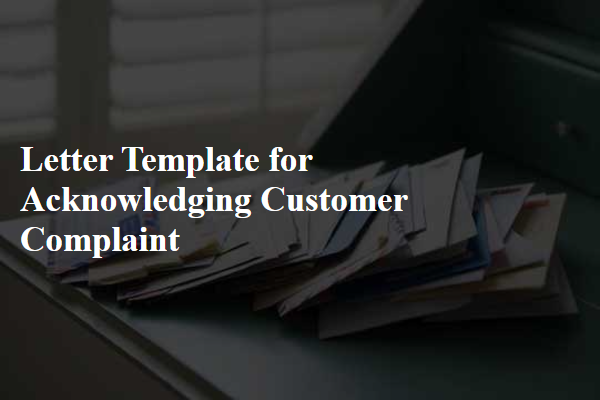
Polite and Professional Tone
Customer complaints about service quality often arise in various industries, leading to valuable feedback. A timely acknowledgment of such complaints demonstrates professionalism and a commitment to customer satisfaction. For instance, a hotel receiving dissatisfaction regarding room cleanliness might respond within 24 hours, ensuring the guest feels heard. A comprehensive response would include an apology for the inconvenience, an assurance of investigation, and a commitment to resolving the issue, reflecting the business's dedication to improving the guest experience. Addressing complaints effectively is crucial for fostering positive customer relations and enhancing brand reputation.
Clear Reason for Acknowledgment
Customer complaints often stem from service dissatisfaction or product malfunction. Acknowledgment of such complaints is critical for maintaining customer relationships. It allows businesses to recognize issues, such as product defects (e.g., faulty electronics), poor service quality (e.g., long wait times at restaurants), or incorrect billing (e.g., discrepancies in invoices). Immediate acknowledgment reassures customers, showing that their concerns are taken seriously. This can be achieved through clear communication channels, including email, chat support, or phone, ensuring responses within 24 to 48 hours. Proper acknowledgment contributes to customer retention and enhances overall satisfaction.
Expression of Empathy and Understanding
Experiencing a customer complaint can deeply affect a company's reputation and service quality. Acknowledging issues promptly demonstrates empathy towards frustrated consumers. A common scenario involves a delayed delivery, with many clients expressing dissatisfaction over service interruptions. For example, a package arriving three days late (typically shipped via UPS) can lead to customer disappointment, especially during peak holiday seasons. Understanding their concern, especially in busy areas such as New York City, highlights a company's commitment to improving logistics and communication. Drawing attention to feedback on social media platforms like Twitter or Facebook reinforces transparency and outreach, showing that the organization values user opinions and seeks to enhance overall satisfaction.
Assurance of Further Action or Investigation
Customer complaints can lead to significant improvements in service quality and customer relationship management. Prompt acknowledgment of grievances is vital in retaining client trust. Detailed records should be maintained regarding the complaint timeline, which includes the date of receipt, nature of the complaint, and the personnel assigned to investigate. The assurance of further action involves outlining specific steps such as gathering detailed information from the customer, investigating the issue through internal protocols, and implementing corrective actions if required. Timeliness is crucial; responses should be provided within a stipulated period, ideally within 48 hours, to assure customers that their concerns are taken seriously. Regular updates about the resolution process can enhance customer satisfaction and demonstrate the company's commitment to addressing issues effectively.
Contact Information for Follow-up
Acknowledging customer complaints is a crucial part of maintaining good relations with clients. Each complaint should be taken seriously to ensure customer satisfaction and loyalty. Companies often provide contact information to streamline follow-up processes. For instance, a dedicated customer service line may be offered, with representatives available from 9 AM to 5 PM on weekdays. Email support could also be an option, with response times typically within 24 to 48 hours. Additionally, businesses may provide links to online chat support or ticket systems, allowing customers to track the resolution status of their complaints. Efficient follow-up helps reinforce customer trust and demonstrates a commitment to addressing issues.

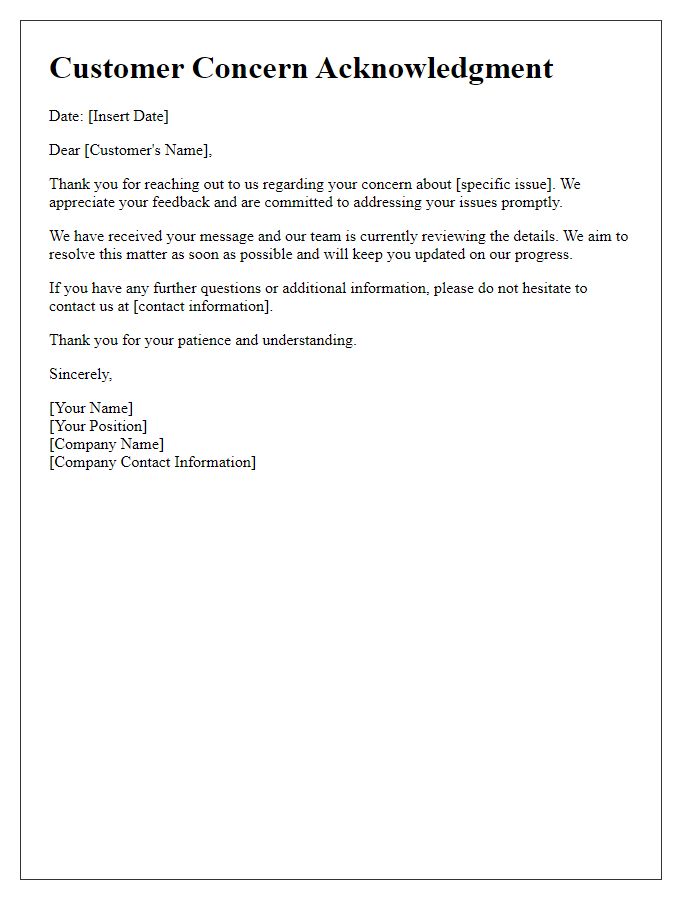
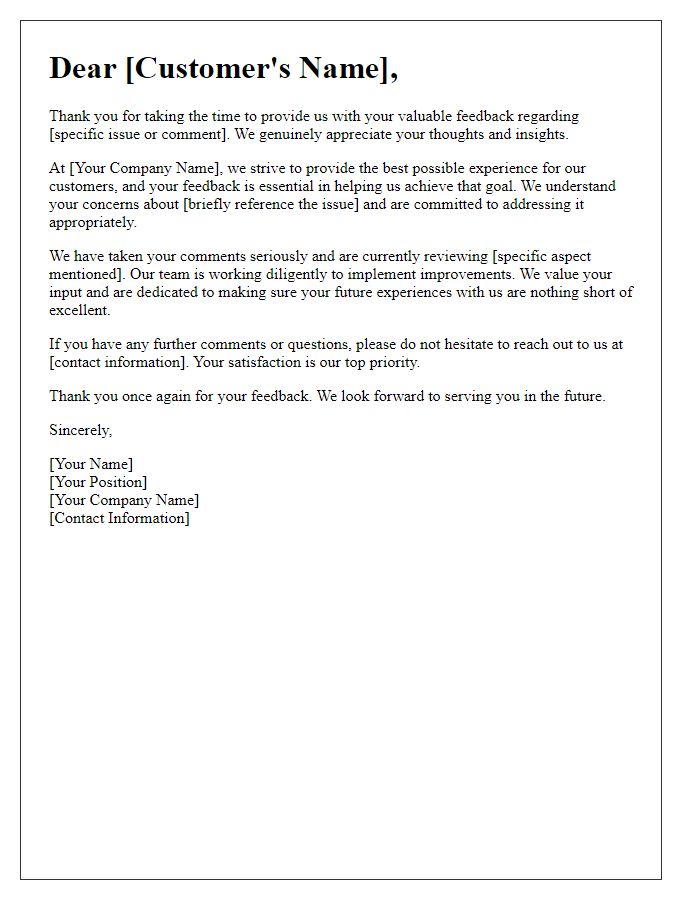
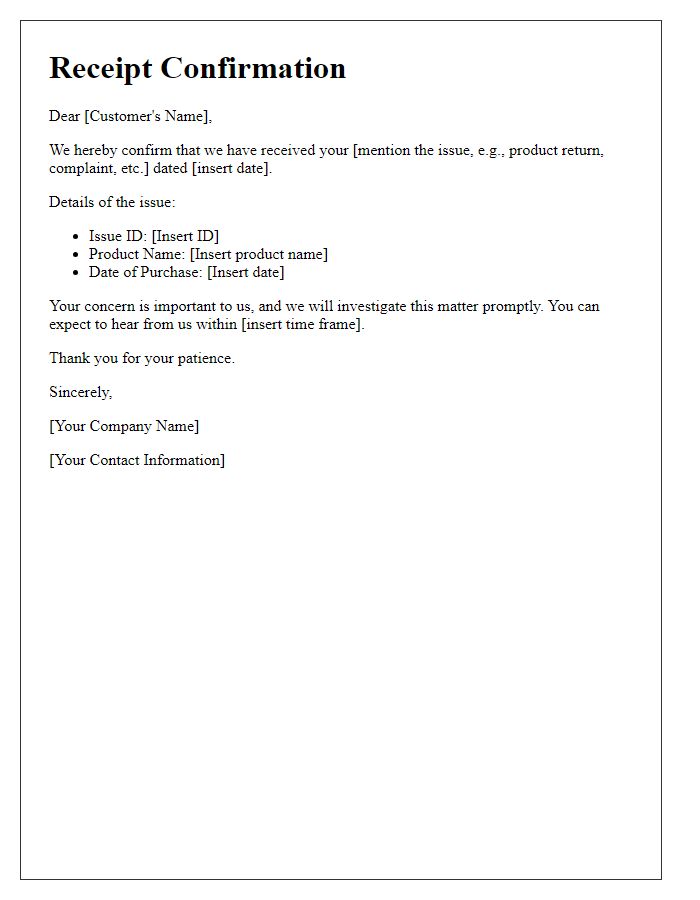
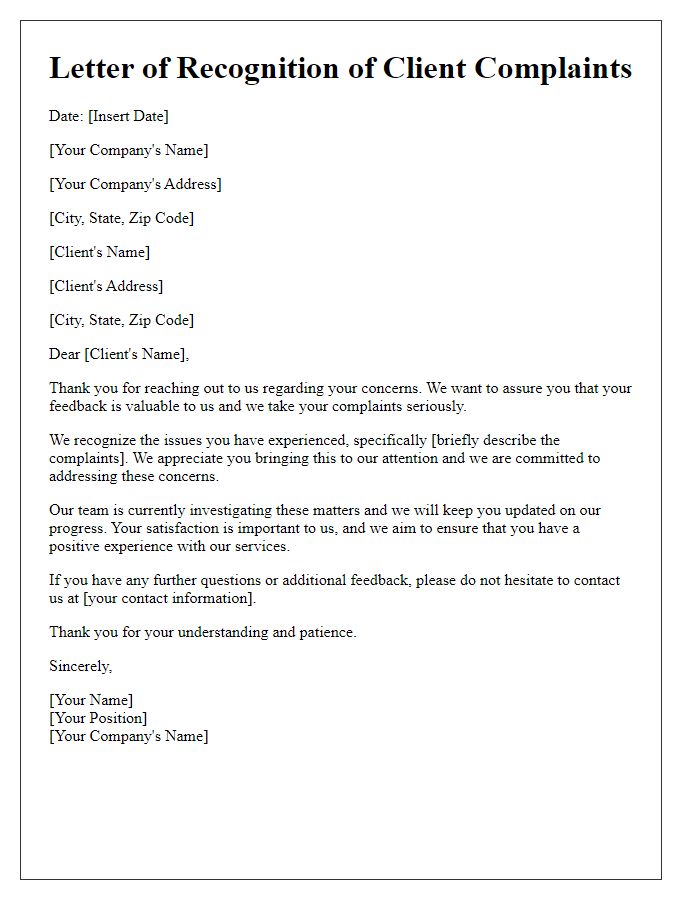
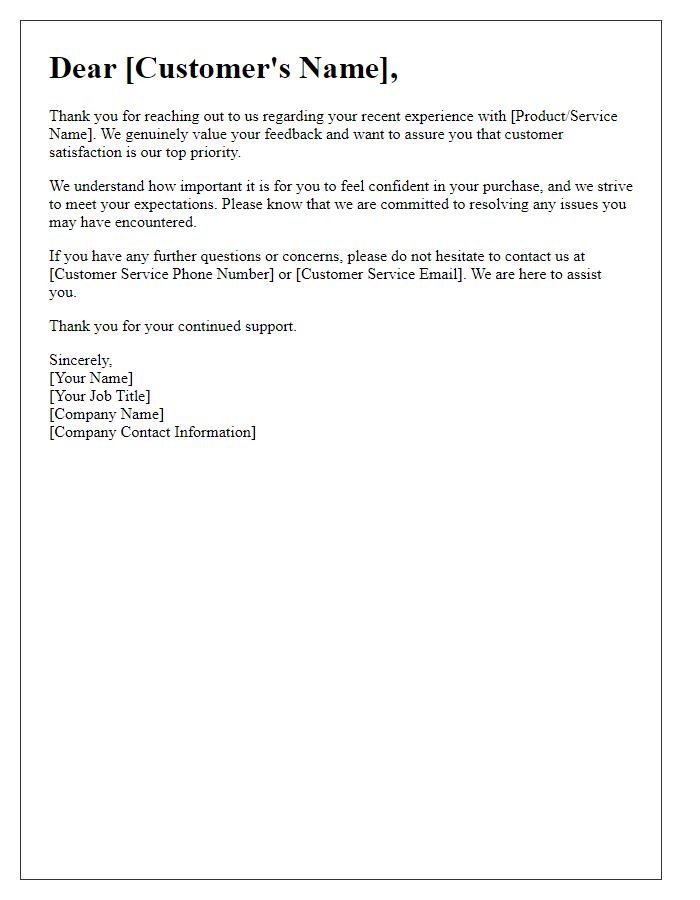
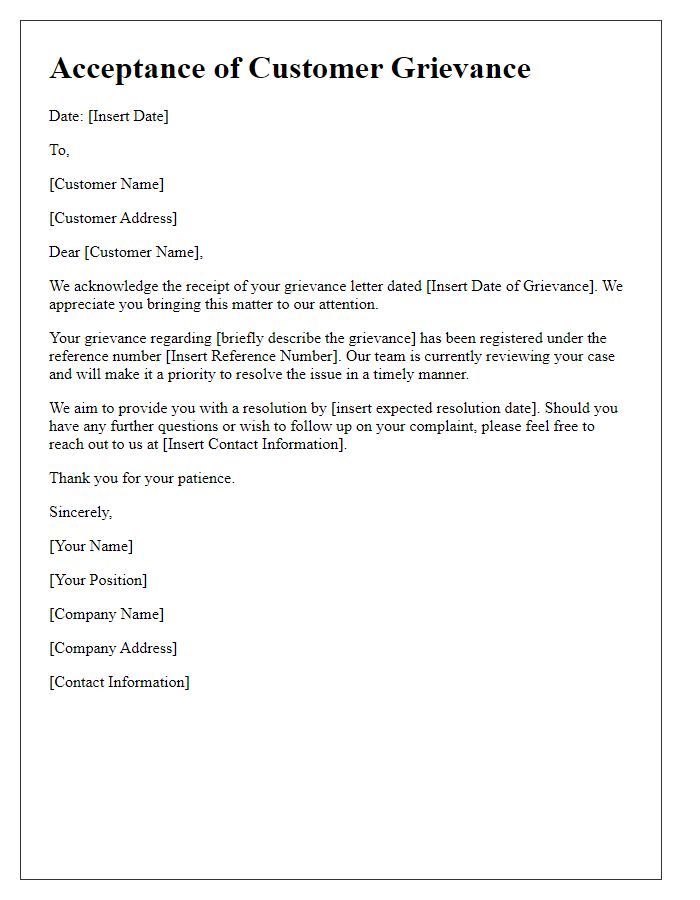
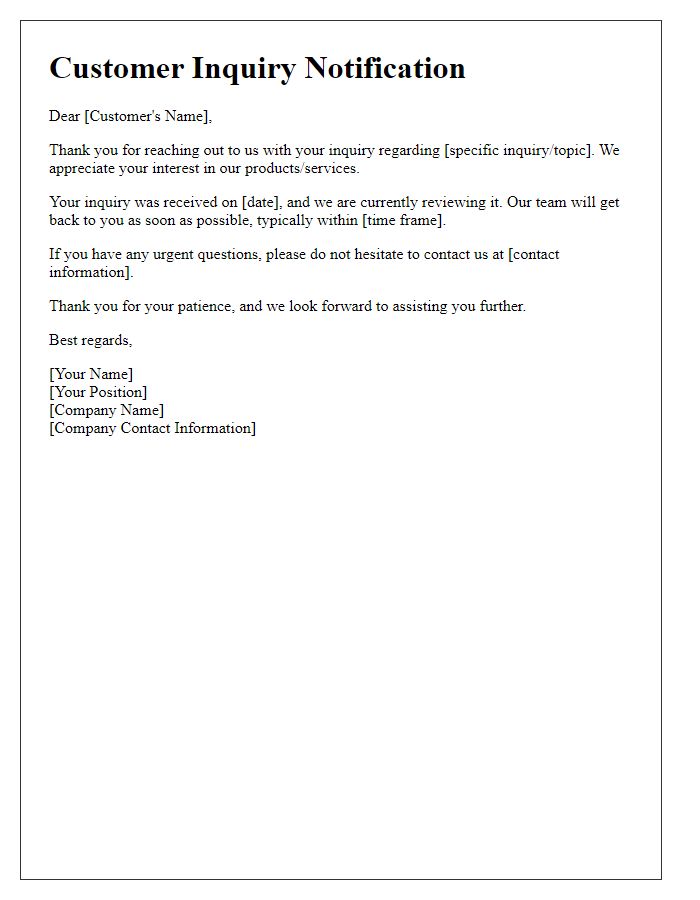
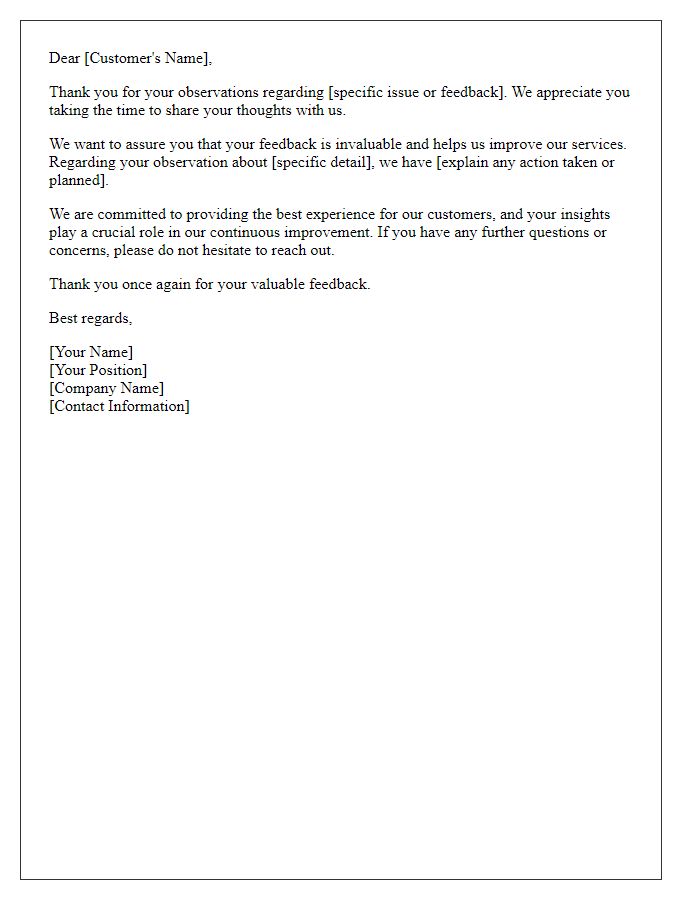
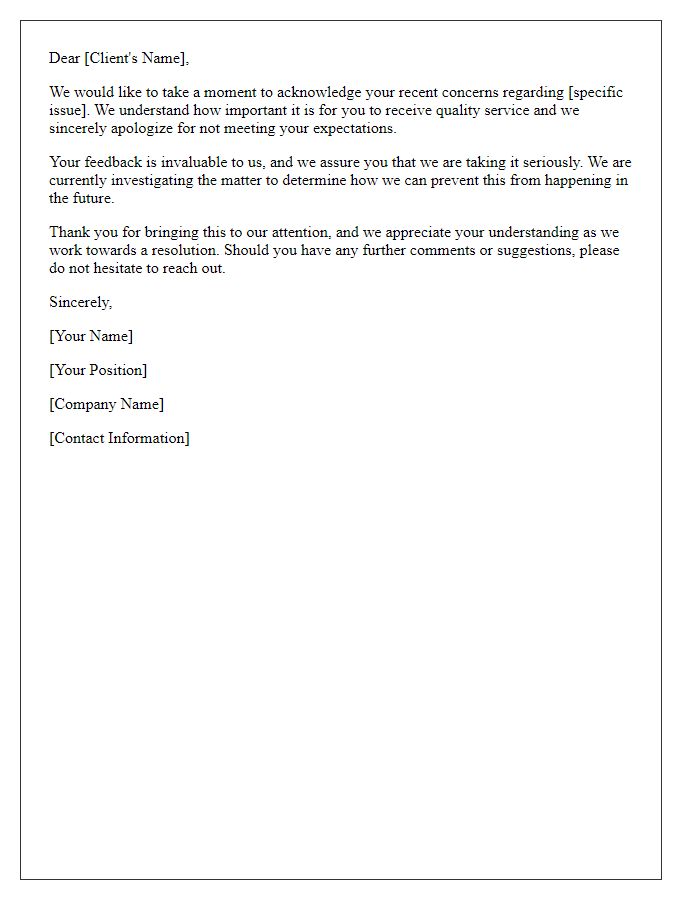
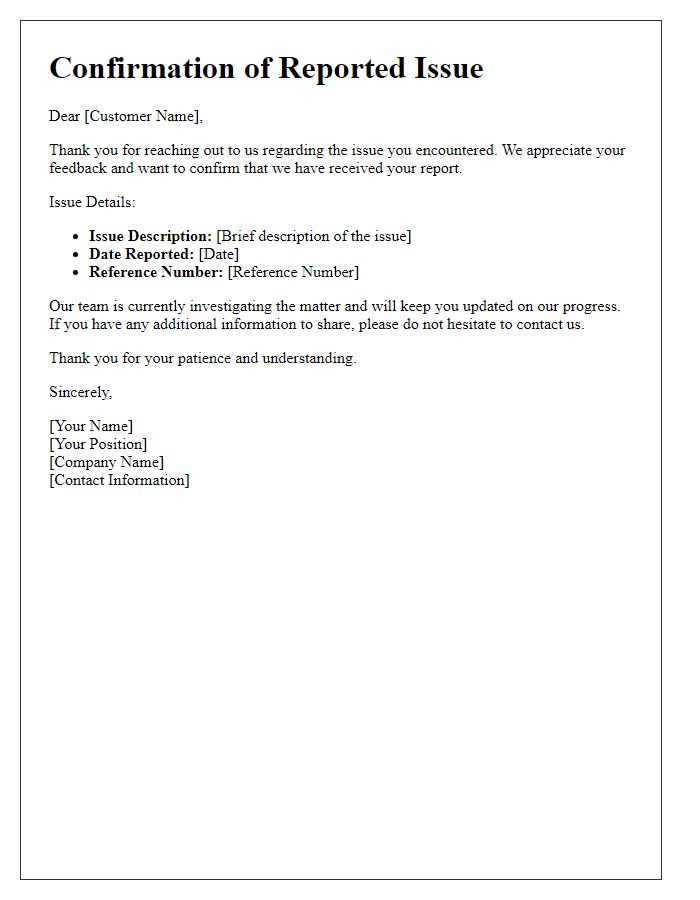


Comments